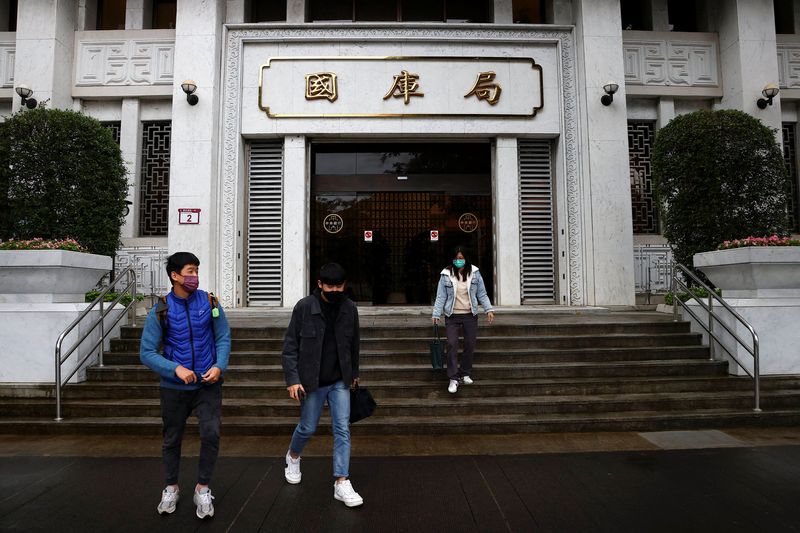By Liang-sa Loh and Faith Hung
TAIPEI (Reuters) -Taiwan's central bank on Thursday flagged continued tight monetary policy as it keeps a close eye on inflation, and trimmed its 2023 growth forecast for the export-reliant economy.
Taiwan is a major producer of semiconductors used in everything from cars to smartphones and sluggish global demand has affected its many tech manufacturers.
With global demand hit by high inflation, rising interest rates and the impact of the Ukraine war on global demand, its economy slipped into recession in the first quarter though it returned to slight growth in the April-June quarter.
Taiwan central bank Governor Yang Chin-long told reporters after a quarterly rate-setting meeting that growth would start to pick up from the fourth quarter with global trade recovering next year.
However, he warned of risks, including China's economic slowdown and China-U.S. trade tensions, and that even with inflation projected below 2% for next year Taiwan's interest rates might need to remain "a little higher" for "a little longer".
"Our first priority is to watch for inflation," he said. "Our interest rates went up gradually, and will go down gradually, unless the economy drops badly."
The central bank, in a unanimous decision, left the benchmark rate at 1.875%, where it has stood since March, extending a pause in its current round of tightening which began in March of last year. It raised rates five times by a total of 75 basis points to rein in price pressures.
All economists in a Reuters poll had predicted the central bank would stand pat.
The move follows the U.S. Federal Reserve's decision to keep interest rates steady on Wednesday, though it signalled policy would remain slightly restrictive for some time.
Taiwan's central bank again cut its 2023 estimate for economic growth to 1.46% from a forecast of 1.72% in June, but predicted a rebound in 2024 with growth of 3.08%.
It also trimmed its headline consumer price index (CPI) forecast for this year to 2.22% from a previous prediction of 2.24%, but said it saw it falling to below 2% next year.

Kevin Wang, an economist at Taishin Securities Investment Advisory in Taipei, said with economic growth remaining moderate into next year, the central bank will continue to stand its ground on rates.
"Taiwan will not be able to cut rates until the U.S. Federal Reserve starts doing so, but that time point should not be until the second half of next year," he said.